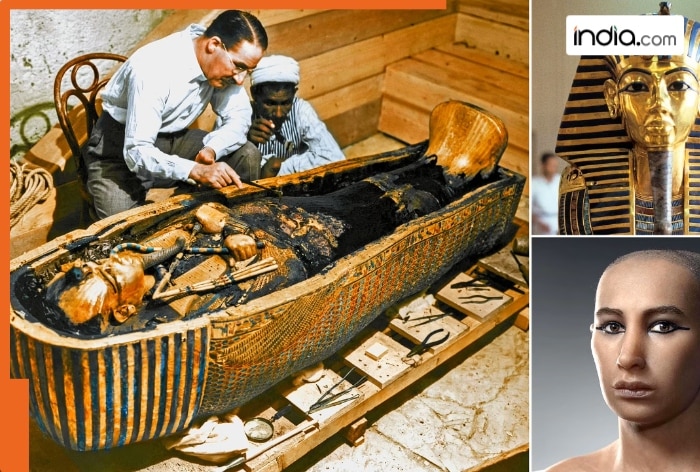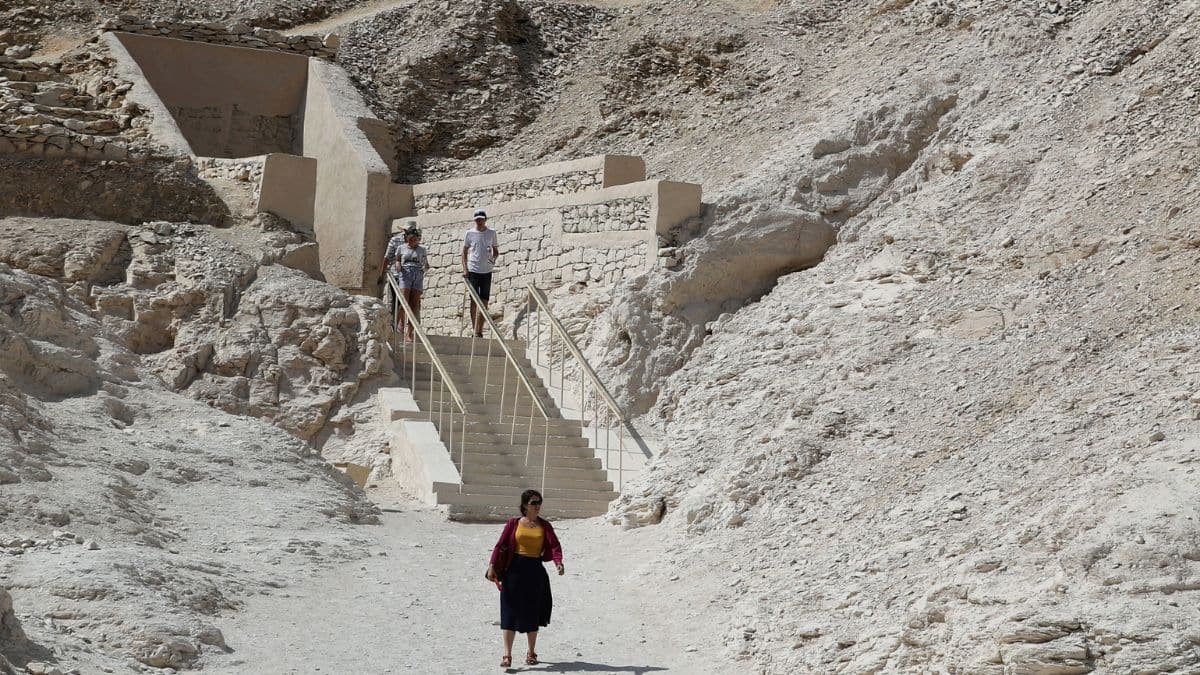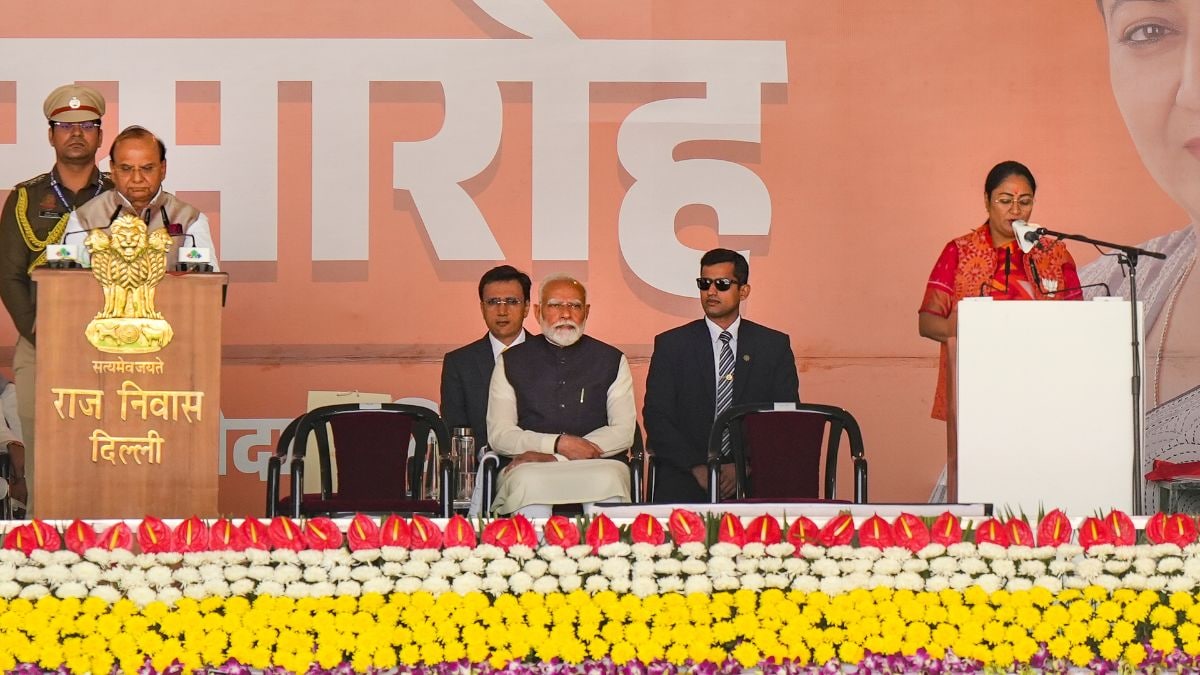Rs 498000000000000: Is China playing a double game with its close friend Pakistan? Trump-Shehbaz Sharif mega deal under fire due to…, Beijing to…
Pakistan and the United States entered into a significant agreement regarding rare earth materials.

Rare earth minerals are emerging as the new gold for many nations, inspiring a new round of international competition and strategic partnerships. These vital resources are essential for manufacturing everything from electric vehicles and smartphones to weapons systems and renewable energy technologies. They have rapidly become the foundation of the 21st-century economy. As nations seek to secure supply chains, control of these minerals is becoming an important indicator of economic power and geopolitical influence. Rare earth minerals are expected to take on a more important role in the future, reshaping alliances, influencing trade policy, and altering the balance of power among major global players like the U.S., China, and new producers such as Pakistan.
What is the Trump–Shehbaz Sharif rare earth deal worth?
In September, Pakistan and the United States entered into a significant agreement regarding rare earth materials. Under the agreement, US Strategic Metals (USSM), based in Missouri, will invest USD 500 million into the exploration and processing of rare earth and critical minerals in Pakistan. The agreement includes the untapped reserves in Pakistan valued at nearly USD 6 trillion worth of rare earth materials and critical minerals. Most of these minerals are located in the troubled province of Balochistan. However, China’s dominance and monopoly in this area would be a significant obstacle to the successful implementation of the agreement.
As reported in Eurasian Times, after the deal was announced, US Strategic Metals (USSM) received its first delivery of rare earth minerals from Pakistan, sparking excitement throughout Pakistan. Additionally, this further solidifies Army Chief General Asim Munir’s prestige, and a number of Pakistani commentators have lauded the deal as a possible solution for Pakistan’s ongoing economic hardships.
Although Pakistan may be celebrating its deal struck with the United States, the country’s rare earth reserves remain under geological survey, meaning there are no credible estimates of the quality or level of concentration of these reserves. If the concentration of the rare earth elements is low enough, the entire mining operation may not be financially feasible. In essence, serious questions remain as to the true potential of the mineral bounty of Pakistan.
Why is China seen as a threat to this mega deal?
High-grade deposits – those with higher concentrations of rare earth elements – have lower extraction and process costs, and enhance profitability. Whereas low-grade deposits represent a large amount of material to process, and require complex refining technology, thus increasing the overall operation costs. In the case of Pakistan, rare earth reserves are still being assessed through geologic exploration and have no credible data at this point in time regarding the grade of the deposits or the grade of rare earth elements in these deposits. If the concentrations of rare earth elements are low, extraction could be considered too economically unsustainable and create doubts about the overall future of the project. Taking current exchange rate (1 USD ≈ 83 INR), So, 600,000 crore × 83 = 498,000,000,000,000, which is ₹498 trillion.
A significant concern regarding the Pakistan-U.S. deal on rare earth elements is the competition with China in the global market. The Chinese government exerts large control over the mining and processing of rare earth elements, and, in effect, sets the international prices for these elements. China has established this control backed by the state in production, advanced refining capabilities, and a series of export policies. Competing with a system like this is nearly impossible for a country like Pakistan, especially since it faces security issues along with economic instability.
For over four decades, China has been engaged in the mining and processing of rare earth elements. Very early on it invested heavily in the advanced technologies for the efficient extraction and refining of these strategic minerals. Today China controls about 70% of the rare earth mining globally, 90% of the processing, and 98% of rare earth magnet production. In sharp contrast, Pakistan has no experience or established infrastructure in this highly specialized technology-dependent field.
The Center for Strategic and International Studies (CSIS) argues that “A key obstacle to minerals security is China’s deliberate manipulation of global markets—flooding them with excess supply to push prices so low that mines in other countries become unviable. This approach has made it difficult for the other countries to compete with China under current market conditions,” as reported by Eurasian Times.
What challenges does Balochistan and Khyber Pakhtunkhwa pose?
In this scenario, the prospects for Pakistan to compete with China in the rare earth sector are very slim. Pakistan has an underdeveloped economy and insufficient industrial capacity to manage the cost and technology necessary to compete in this methodologically important and capital-intensive industry.
STORY HIGHLIGHTS
- High-grade deposits – those with higher concentrations of rare earth elements – have lower extraction and process costs, and enhance profitability.
- US Strategic Metals (USSM) received its first delivery of rare earth minerals from Pakistan.
- Rare earth minerals are expected to take on a more important role in the future, reshaping alliances, influencing trade policy.
- For over four decades, China has been engaged in the mining and processing of rare earth elements.
The rare earth reserves of Pakistan are based in the provinces of Balochistan and Khyber Pakhtunkhwa, which are both affected by insurgency and security issues. This means operating in and around these volatile times will not be easy for the American company, especially when parts of the areas are not fully under the Pakistani military’s control.
What's Your Reaction?




















































